The greatness of a nation can be judged by the way its animal are treated-Mahatma Gandhi
Animals are the integral part of our culture since the civilization period. Society without animals is not imaginable. For the compassion of animals and animal welfare we need veterinarian for the society. Veterinarian plays great role in our society starting from animal’s treatment to prevention and control of deadly diseases like Rabies. They have lot of contribution to our society including employment generation, food security, food safety and improvement of livelihood in the rural society. They are master in the control of diseases and handling of the disasters. They contribute lot for society without any expectation. So to their contribution, hard work and commitment towards the society world veterinary congress celebrates last Saturday of every year is celebrated as world veterinary day. World veterinary day celebrated on last Saturday of April month every year to recognize the work of veterinarians all over the world and aims at improving the animal health and welfare. World veterinary day is celebrated from 2000 from all veterinary associations in the world including world veterinary association.
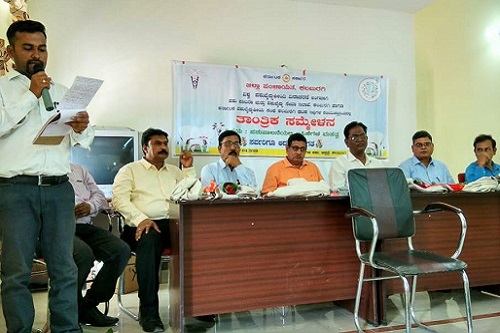
World veterinary association (WVA)
It is a worldwide non-profit organization established in 1863 in Hamburg. It is an independent international association having more than 80 veterinary associations from different parts of the world. It is the association which will declare the theme for the particular year celebration of world veterinary day. Its main objective is to promote animal health and welfare. World veterinary association works with World health organization (WHO), Food and agriculture organization (FAO) and world organization for animal health on behalf of its member associations. World veterinary association unites and represents the global veterinary profession. This association also announces the world veterinary day award for its member associations who have successfully celebrated the world veterinary day based on the theme of that particular year. Individual veterinarian cant became member of this association, but veterinarians state and national level associations can became the member of world veterinary association by paying the prescribed fees to the world veterinarian association.
World Veterinary Day Award
This award will be presented to only member associations of world veterinary association and the member associations should celebrate the world veterinary day in effective manner on the prescribed theme in innovative way. Last year theme was “Environmental protection for improving animal and human health’’ and award won by Kerala Veterinary association, Republic of India. Participant should celebrate World Veterinary Day based on theme of that particular year n submit the celebration proof of documents up to June first and the result will be announced on July last week of that particular year. Recently animal welfare one more category awards are also awarding in different categories. This year theme for the celebration of world veterinary day is “Veterinarian response to COVID 19 crisis” Members association can celebrate and send the brief report for the award in different categories on or before prescribed date.
Previous year’s themes for the world veterinary day celebration are as follows
World Veterinary Day-2009 theme “Veterinarians and livestock farmers, a winning partnership”
This theme indicates the importance of veterinarian and livestock farmers relationship for the successful outcome of the various farming activities in the rural area for the livelihood of farmers and the employment and income generation activities in the rural areas. Veterinarian plays an important role through the extension activities like Gramsabha, Kisansamparkasabha, farm visits, farmers training, field demonstration type of training and through electronic media programmes like interview of successful farmers, talk on various diseases, farming, season wise and species wise management activities in local languages so that farmers and those who have aspiration to become a livestock farmers. If both veterinarian and farmers are interested to do something means this will creates the success stories on various farming activities. Dedicated veterinarian and responsible farmers are the key factors for the successful animal husbandry farming.
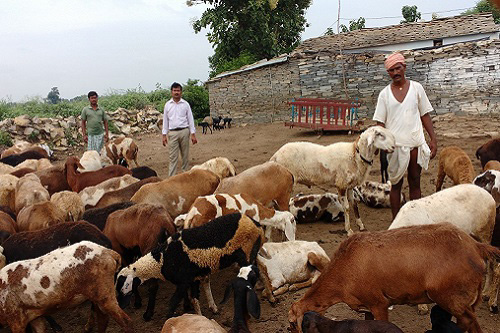
World Veterinary Day-2010 theme “One World, One Health: more cooperation between veterinarians and physicians”
According to recent survey 72% of human emerging pathogens are of zoonotic origin. Recent pandemic disease COVID 19 has origin from bats. Veterinarian plays a crucial role for the control of zoonotic disease, without involvement of veterinarian it is very difficult to control and eradicate the zoonotic diseases. Veterinarians create awareness about the zoonotic diseases in the rural part to livestock farmers as well pet owners and breeders of the urban areas. Veterinarians will do deworming, vaccination to all animals as a part of their job chart that itself will be the primary step for the control of a diseases. They also gives awareness about control of disease in face to face contact with farmers and pet owners and also through the electronic media and print media in terms of discussions and popular articles respectively.
World Veterinary Day-2011 theme “Rabies prevention”
Rabies is the disease of all warm blooded animals including human, a disease of nervous system caused by Lyssa Virus belongs to family Rabdoviridae. As per WHO estimation 55,000 – 1,00,000 human rabies cases are recorded annually in Asia and African continents which means one case fatality for every 9 minutes across the globe and most of the victims are children. There is no anti-viral therapy for Rabies. Immediately after the bite of dog wash the wound with soap and plenty of water. Iodine preparations and viricidal preparations should be applied to the wounds. Then immediately contact the veterinarian n have day zero post-bite vaccination to your animal. If wound is deep penetrated by the teeth of bitten dog local immunoglobulin therapy also advised on day zero and 7th day. Tissue culture vaccine 1ml will be given in intramuscular route. Rabies is 100% preventable disease through vaccination but once the disease symptoms are observed in dogs or in other animals than disease will be 100% fatal. Pre bite vaccination given in Dog puppy at 3 months of age with booster vaccination dosage will be given after 21 days followed by regular annual booster will given. Vaccination to human and animals is the best remedy to prevent the rabies, give post bite in suspected animal bite cases and pre bite primary and annual vaccination in healthy animals. So prevention of rabies is the need of the hours to save the valuable life of human and animals. Elimination of dog mediated rabies by 2030 is the primary aim to prevent the rabies.
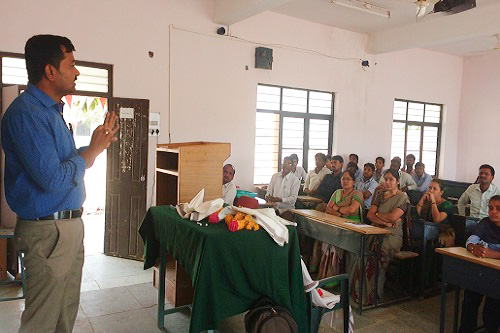
World Veterinary Day-2012 theme “Antimicrobial resistance’’
Indiscriminate usage of antibiotics in humans, food animals and crops leads to the global problem of antimicrobial resistance. Before using an antibiotic therapy kindly consult your physician. For animals treatment kindly consult your veterinarian and never skip the prescribed antibiotic dosage even when animal looks cured completely. Improper dosage, improper route of administration and unnecessary usage will causes the development of resistance in microbes. Anti microbial resistant organisms can affect the health of human and animal at any time. Follow hygienic measures in animal farms. Follow proper vaccination schedule in animals to avoid the disease outbreak in animals. Good management and clean feed and water can reduce the disease risk and usage of antibiotics in animals. Nosocomial and iatrogenic infections should be avoided. So veterinarian has a role in the prevention and control of antimicrobial resistance.
World Veterinary Day-2013 theme “Vaccination”
The term vaccination coined by Edward Jenner in 1798, who is known as father of Immunology,. The word vaccination derived from Latin word Vacca means Cow. He showed that people with cowpox are immune to smallpox and prepared small pox vaccine from cow pox extract. WHO defines vaccination as immunization is the process whereby a person is made immune or resistant to an infectious disease, typically by the administration of a vaccination. Vaccines stimulate the body’s own immune system to protect the person against subsequent infection or disease. OIE defines vaccination is the administration of a vaccine in accordance with the manufacturer’s instructions and the Terrestrial Manual, when relevant, with the intension of inducing immunity in an animal or group of animals against one or more pathogen agents. Vaccine contains a microorganism or virus in a weakened, live or killed state or proteins or toxins from the organisms which is given at prescribed time and age, which will protect from the prescribed infection by producing the antibodies. Louis Pasteur developed vaccines against Fowl Cholera, Anthrax and Rabies. Vaccination promotes international trade. Vaccination will helps in economical stability in
livestock industry.
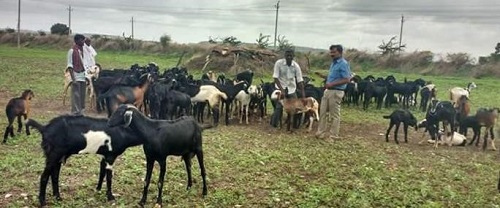
World Veterinary Day-2014 theme “Animal welfare”
The theme gives more importance on animal health care, reduce the sufferings from diseases, parasites, poor management and due to more work or any stress inducing activity. Good management practices can reduce the sufferings of animals. During the farming activities proper feeding and watering should be done to reduce the suffering of animals. Deworming, dipping and vaccination procedures should be followed for the animals to reduce the suffering from internal, external parasites and diseases respectively. Animal should due care for the suffering during summer, winter and rainy season due to climatic variations and animal should be placed in animal shed with good quality roof and sidewalls. Clean and potable water should available to animals all the time. Even some of routine clinical examinations and minor surgical procedures like lancing of abscess should be done with proper anesthetic procedure. During the transport of animals prescribed space should be given to animals and overcrowding should be avoided, proper loading and unloading of animals should be done without making any injury or pain to animals and proper feeding and watering care should be taken and transport of animal should be done in cool hours with proper bedding materials and all stress factors should be reduced.
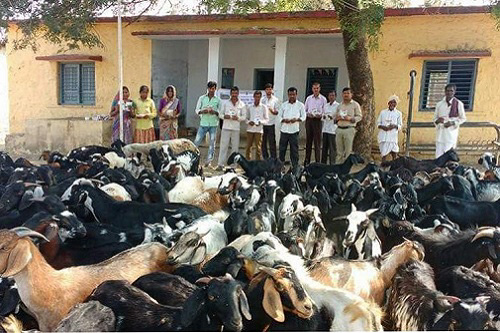
World Veterinary Day-2015 theme “Vector-borne diseases with zoonotic potential”
Due to increased urbanization, improper waste management, change in climate, resistance to the insecticide agents vector born diseases are getting more and more importance in human as well as animal population. Vector are common insects that carry and transmit disease causing bacteria, virus and parasites. Tick born zoonosis includes Lyme disease, Rickettsiosis, Babesiosis, Kysanur forest disease, Q- fever, tick born encephalitis, Mosquitoes born diseases are Chikungunya a fever, malaria, yellow fever, Japanese’s encephalitis, Westnile fever, rift valley fever, lymphatic filariasis, dengue, plague transmitted from rat fleas, Leishmaniasis transmits from sand flies, bats spreads COVID and Nipah virus etc. Half of the world is in risk of vector born zoonosis. Vectors should be controlled with various methods to avoid the further transmission of diseases. Bite from vectors should be avoided to animals and human. Vectors breeding sites should be destructed and biological methods of control of vectors should be followed as per the expert opinion.
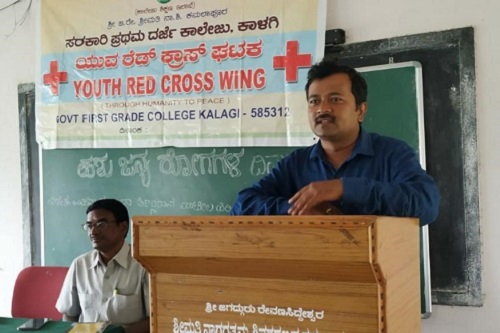
World Veterinary Day-2016 theme “Continuing education with a one health focus”
One health approach is more important to control and prevent the diseases which are zoonotic in nature. Medicos and veterinarian together work as a joint team for welfare of human being and animals as they are dependent on each other. So prevention of particular diseases is a challenging task for Veterinarian and Medicos if they are alone but together they can achieve more in short period of time. Veterinarian protect health of animals and indirectly he also protects human health also. Early control of zoonotic disease is a great contribution to human health. As we know 60% of human pathogens have animals as source and 70 % of emerging human diseases have zoonotic origin. Diseases like Swine flu, bird flu, COVID-19 they have created panic in the human population causing high morbidity and mortality. One health concept bring veterinarian, medicos bring together for the better addressing of the prevention and control of diseases which have zoonotic importance, together they can archive the goal. So this theme gives importance of continuing of education to veterinarians and one health approach for the prevention of disease with the co-operation from medicos.
World Veterinary Day-2017 theme ‘’Antimicrobial resistance’’
Over prescription of antibiotics, early finishing of antibiotic therapy before completing prescribed course, lack of sanitation and hygiene, over or under dosage, higher antibiotics for simple fever, over usage of antibiotics in food animals and crops, not following the antibiotic withdrawal period for milk and meat, lack of vaccination, hygiene in the farms and lack of developing of new antibiotics are the primary factors causing antimicrobial resistance in animals. Day by day world is affecting this problem as serious threat and simple disease are not curable due to antibiotic resistance. So usage of antibiotics should be done under the supervision of qualified veterinarian under field condition.
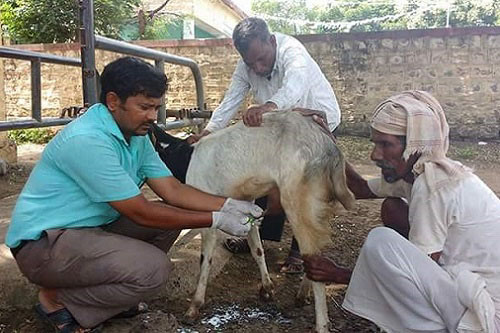
World Veterinary Day-2018 theme “The role of the veterinary profession in sustainable development to improve livelihoods, food security and safety”
Veterinarian are the key persons for the changing of life and livelihood of rural farmers. By veterinarian motivation and technical support farmers can achieve more in animal husbandry farming. Animal farming is the best business in the world. It will gives moral compassion and healthy social values. Animal husbandry with the guidance of veterinarian will provides the employment throughout the year, manure and drought power to the agriculture, milk eggs and meat to families with high biological value protein, generates income round the year and animal husbandry will takes farmers towards the self sufficient life. Animal husbandry is the important component of GDP of a particular country. In India GDP contribution of milk is more than the sugarcane and rice. GDP contribution of poultry is about 1% of total country GDP. Animal husbandry is the key component of agriculture. Agriculture with animal husbandry will gives sustainable income generation activities in rural part of India. Milk and milk products meat, egg will gives food security and improves the livelihood and safety.
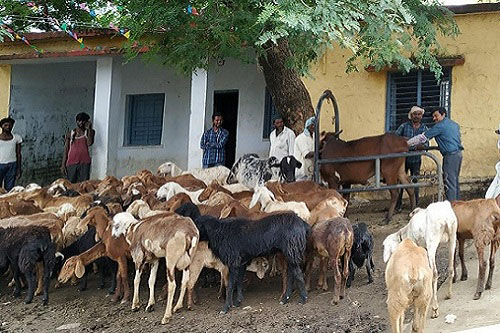
World Veterinary Day-2019 theme “Value of vaccination”
Vaccination will helps in disease eradication, it will reduce the suffering of animals in terms of disease outbreak with high morbidity and mortality. Example: Foot and mouth disease. Vaccination will protect the health of individual animal from a particular disease at a given time. Example: HS Vaccine given prior to monsoon to control the outbreak in monsoon. Vaccination will improve the animal welfare by reducing the incidence and suffering from the disease. Example: BQ Vaccine. Vaccination will reduce the disease incidence, as a result improves health and productivity of animal. Example: ET Vaccination in Sheep and Goat. Vaccination acts as tool in control of disease. Example: HS and BQ Diseases out break Vaccination acts as a control measure in outbreak of some of disease in terms of Ring vaccination. Example: FMD outbreak. Vaccination helps in control of zoonotic diseases. Example: Rabies. Vaccination helps in control of disease in pets and birds. Example: RKT Vaccine in birds. Regular vaccination programmes will reduce the severe economical losses from the deadly diseases like Black quarter and Anthrax in dairy industry in terms of morbidity, treatment expenses and mortality. Vaccination will helps in build-up the herd immunity. Example: Foot and mouth disease. Vaccination will helps in control of emerging and exotic diseases. Example: Lumpy skin disease in Cattle. Vaccination will reduce the usage of Chemotherapeutic agents thereby reduce the cost of production in livestock industry. Example: HS and BQ Vaccine. Vaccination will be the cost effective method in disease control and management practices. So vaccines have a great value in animal health and welfare.
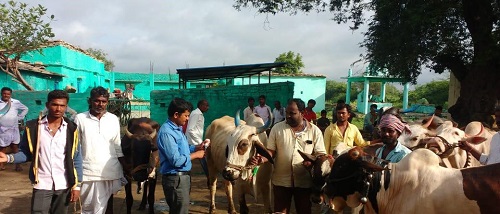
World Veterinary Day-2020 theme “Environmental protection for improving animal and human health’’
In the name of development industrialization, urbanization like activities by the human environment getting spoiled day by day. Environment includes all biotic and abiotic components together they form ecosystem. For the sustainable animal farming and optimum production we need good environment in terms of good water resources, fodder sources and good management practices. Due to environment pollution lot of challenges we are facing includes climate change, floods, droughts, water and food scarcity, t-tsunami, cold wave’s, heat waves, increased lightning strikes and emerging of new disease pandemics to both human and animals leads to lot of threats to human and animal welfare. So protection of environment is necessary for the human and animal welfare. Plant tress where there is waste land, side of roads and railway track, in school grounds, veterinary institutes open places. More plants and go green should be the aim for the protection of environment. Waste generated from animals including carcass of animals should be disposed scientifically.
World Veterinary Day-2021 theme “Veterinarian response to COVID 19 crises”
Veterinarians are front line COVID 19 worriers in the control of COVID starting from testing of samples to developing of vaccine to humans for the control of COVID 19 as a team members and they also working as COVID centres in charge including executive and nodal officers in the rural and urban areas. Veterinarians faced lot of difficulties initially; gradually they supported the jobless youth and persons in guiding the new job event in terms of animals farming activity in their own locality. They attended more webinars organized by various international, national, State associations, pharmaceutical companies and related Non Government associations and they have upgraded their technical knowledge. They became experts and resource persons for various online trainings for vets, para vets and farmers. They supported for the animal health care, emergencies, new farming events, training programmes, COVID related works as nodal officers and they have created awareness about COVID 19 to rural people. Now they also are creating awareness regarding COVID vaccination in rural areas.
Conclusion
“Personally, I have always felt that the best doctor in the world is veterinarian. He can’t ask his patients what is the matter….he’s just got to know”-Will Rogers. Veterinarians are working hard for the promotion of animal health and welfare in our society. Most of the time their dedication and hard work goes unnoticed. They work for the control of diseases which have public health importance. Veterinarian are the key persons for food security and safety with the improvement of livelihood of the rural farmers and youths. They promote the animal husbandry farming, milk , egg, wool, skin, hide and ,meat production there by creates the income and employment generation activities in the rural part of India. So for the remembrance of their dedication and contribution to society world veterinary association and all associations in the world are celebrates last Saturday of April month of every year is celebrated as world veterinary day and celebration will be done as per the prescribed theme which is released by the world veterinary association. On this day most of the associations will performs free Rabies vaccination camps, animal health camps, deworming camps and vaccination camps. So veterinarians will work for the society even on the world veterinary day this is the beauty of this profession that’s why most of people says veterinary profession is the noble profession. So it’s our duty to solute the veterinarians on the occasion of world veterinary day and wish them a healthy and prosperous year ahead. Happy world veterinary day to all dedicated veterinarians in the world.
References
- wva.org.in
- WHO prevention of zoonotic diseases.
- Dr. Annarao, Dr. Vivek R. Kasaralikar, Dr. Ravindra B. G. and Dr. Halmandge S. C. (2020). Importance of Vaccination in Veterinary Practice. epashupalan, 1(4), 87-98, https://wp.me/pbYZMt-1Sl
- Dr. Annarao, Dr. Vivek R Kasaralikar, Dr. Ravindra B G and Dr. Halmandage S C (2021). Eliminating Dog Mediated Rabies in India by 2030: Road Map Ahead. epashupalan, 2(2), 89-93, https://wp.me/pbYZMt-2nr
- Zoonotic diseases of public health importance, Zoonosis division, National institute of communicable diseases New Delhi.
- Importance of vector born diseases with their zoonotic potential: present situation and future prospective. M.A.H.N.A Khan
- worldveterinaryday.com

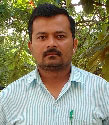

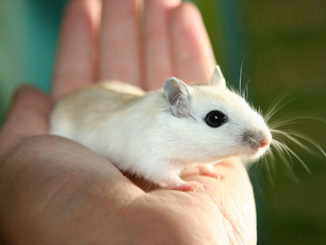
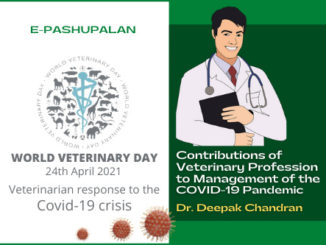


1 Trackback / Pingback